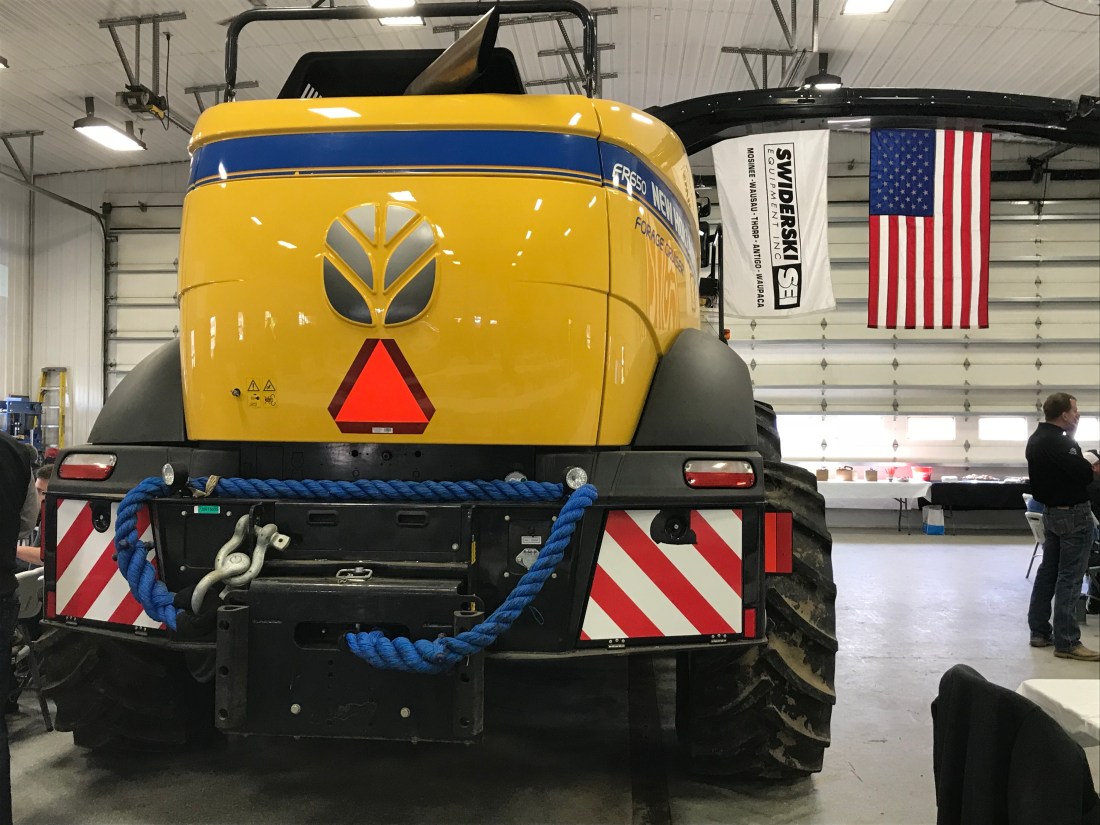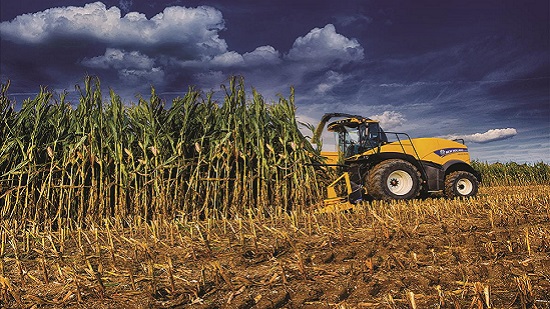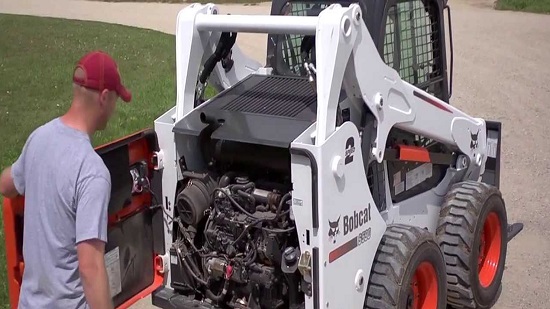SEI Spring Chopper Maintenance Clinics

Properly processing corn silage is critical for today’s modern dairy business. Dairy producers and custom harvest crews alike understand the importance of chopping at the right time with the right machine to harvest their feed potential at the highest level for the entire year. As your partner on the job, Swiderski Equipment is committed to ensuring our customers can maximize their harvest season through proper machine maintenance and set-up, as well as arm our customers with the latest information and technology for a successful chopping season. Our spring Forage Harvester Maintenance Clinics set out to accomplish those exact goals, hosting two days of interactive presentations and hands-on demonstrations from Team Swiderski Specialists and outside experts.
The clinics were held Wednesday, March 21 at Matsche Farms, Birnamwood and Thursday, March 22 at Bach Farms, Dorchester. Attendees learned tips and keys to minimize downtime during chopping season and maximize forage quality with proper maintenance both in-season and during the off-season. Parts and lubricant specialists shared information on how utilizing New Holland brand parts can increase machine performance and positively affect warranty coverage while maintaining higher resale values. Participants also heard from experts on how NIR technology is improving in-field data collected and how this technology can be integrated into their operations for faster decision making and improved feed quality.
With studies showing a conservative increase of 2 pounds or more per cow per day of milk production resulting from an increase in kernel processing scores, producers must do what they can to control variables during chopping. Not only does improving feed quality correlate directly to revenue in the bulk tank, but proper maintenance can lower or minimize costly repair bills. Less downtime means less money lost to potential machines and trucks standing still and employees unable to work. Regular maintenance results in better resale values on machines as well. Let Team Swiderski help you improve your bottom line with proper machine maintenance, set-up and technology during chopping this season!
Special thanks to the families and crew at both Matsche Farms and Bach Farms for hosting and helping making both days a huge success!
Schedule Winter Maintenance Now for Spring Success!
While we may not quite be ready, freezing temperatures and snow flurries are just around the corner. In the fall scramble to get the crops off and the fields tilled, we put long hours on our tractors and equipment. Before you park that equipment for the winter, take advantage of the downtime to have your equipment inspected and routine maintenance performed so you can avoid costly breakdowns during the busy times next year.
Regular maintenance will help ensure the reliability and performance of your equipment and system components for years to come. It will help extend the life of your equipment while also maintaining or even increasing the resale value. You can’t afford to be down during planting season so having your equipment inspected and maintained now can help keep you in the field when you need to be during the busy seasons. Waiting for parts or other possible delays aren’t as costly during the off-season as they would be during the busy spring time.
Winter is also the ideal time to have warranty work completed. Ask about our winter fix offers like the additional six-month extended parts warranty available on new and remanufactured parts installed by a New Holland Dealer now through Dec. 31, 2017. Or take advantage of special financing offers like no payments and no interest on qualifying purchases through your AGCO Plus account through Dec. 31, 2017. Contact your Swiderski Equipment Service Manager to schedule your maintenance or warranty work and help ensure you’re ready for spring fieldwork!
Fuel Requirements for Today’s Diesel Engines
Over the last 15+ years, government mandated emission control standards have forced manufacturers of diesel engines to adopt multiple tiers of control. Tier 4 emissions standards established by the U.S. Environmental Protection Agency (EPA) have reduced the levels of particulate matter and oxides of nitrogen (NOx) to a level that is 50-96% lower today than that of diesel engines manufactured just 5 years ago. To meet the current Tier 4 emissions requirements, manufactures have developed advanced technology that requires more precise maintenance and more specific fluid inputs. These requirements are not specific to any manufacturer, but general to anything using a new diesel engine.
While these engines run more efficiently, they also require more specific fluid inputs, and can be more easily damaged when fluids and maintenance aren’t kept up to specification. Fuel cleanliness remains essential to the proper performance and functioning of diesel engines. Tier 4 engines may experience operating problems when using the same fuel that would have run just fine through an engine built 20 years ago.
The technologies that allow increased efficiency such as high pressure fuel systems will not tolerate the same level of fuel contaminants that might run through an older, even Tier 3 engine, just fine. Subsequently, the need for onboard filtration of fuels has increased. Tier 4 engines require finer filtration media and can plug faster than filters used on older engines. The government mandated change of diesel to low sulfur and ultra-low sulfur diesel (ULSD) has also changed the chemical composition of what we commonly refer to as “diesel fuel”. Not all “diesel fuel” is the same as it’s made up of a complex blend of additives, chemicals, and fuels that vary depending on supplier, time of year, and geographical location.
As we head into winter, keep in mind that extreme cold temperatures can also have a different effect on your new diesel engines. When fuel reaches its cloud point, (that is the temperature in which the wax in diesel begins to solidify and gives the fuel a “cloudy” appearance), the finer filtration required in many Tier 4 engines will plug with the solidified wax. Diesel fuel will reach its cloud point at a higher temperature than the gelling temperature. When it clouds, the machine may not continue to run until the fuel is warmed and the fuel filter is changed. Other contaminants in the fuel such as water can also contribute to operational issues in extreme cold weather. Water can build up in fuel as it’s stored through condensation in fuel tanks. This excess water that falls out of solution in the fuel can form tiny ice crystals that will also contribute to fuel line and filter plugging, along with premature wear on the precise high pressure fuel system components.
Additional maintenance steps may be required in winter months to maximize up-time with new Tier 4 diesel engines. Consider these items and work with your fuel supplier to make sure you are ready for the inevitable cold days we’ll have through winter.

